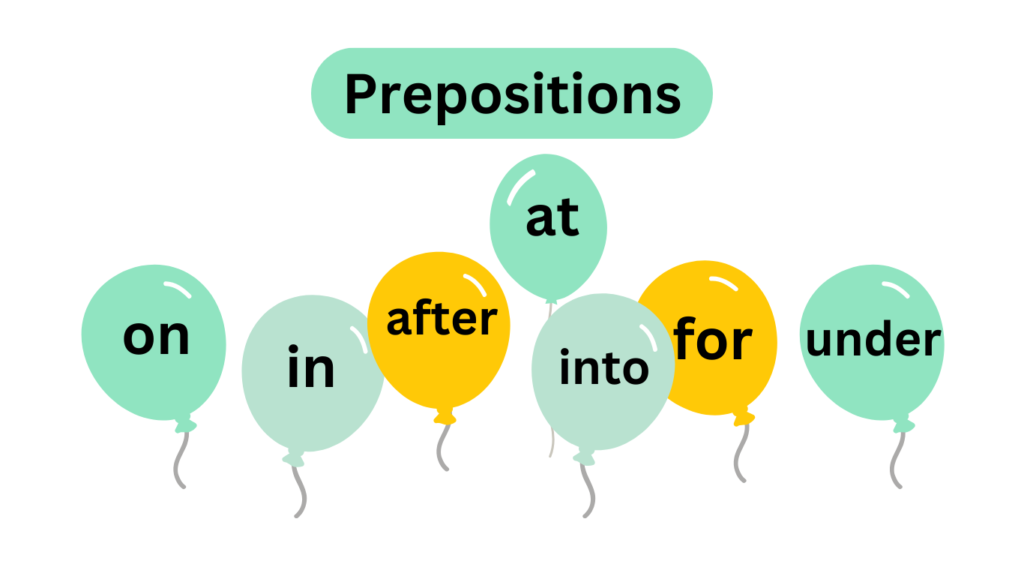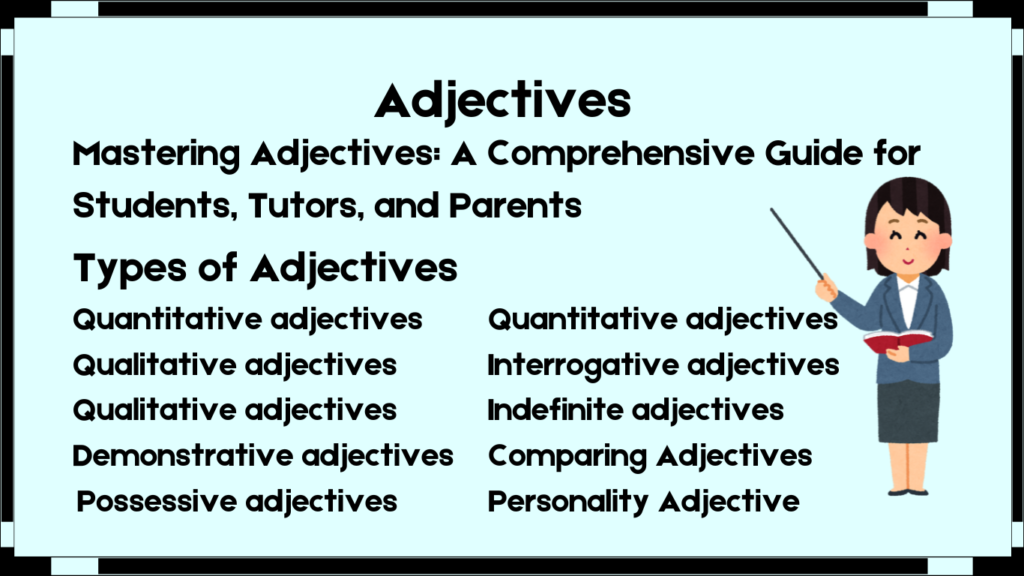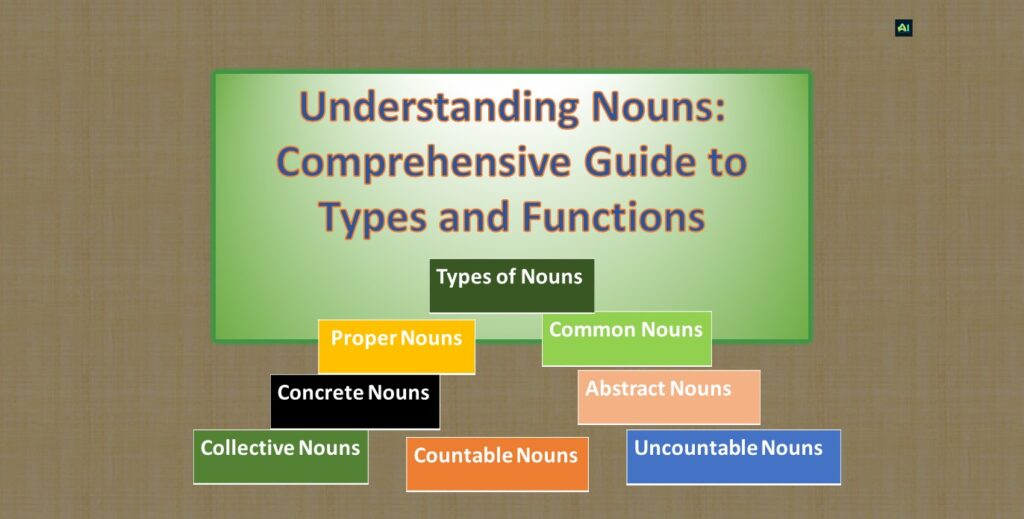Unlocking the Mystery of Prepositions means you are gong to learn all there is to know about prepositions. Prepositions are important aspect of parts of speech , providing essential links between words to form coherent sentences. They help us understand the relationships between different elements within a sentence, indicating direction, location, time, and more. In this comprehensive guide, we’ll explore everything about prepositions, from their types and functions to examples and usage tips.
What is a Preposition?
“A preposition is a word placed before a noun or pronoun to show its relationship to some other words in the sentence” (Murthy, 2007, p. 190). It usually indicates direction, location, time, or method.
Examples:
- Someone is at the door.
- He will arrive by 2:00 P.M.
Examples of Prepositions:
between, above, by, below, near, about, among, across, before, after, on, at, to, out, against, towards, inside, next, round, into, over, behind, under, unless, though, till, from, for, upon, without, during, unto
Types of Prepositions
Prepositions can be classified into structural types and functional types.
Structural Types of Prepositions
- Simple Prepositions:
These are single words that show relationships and are not formed by any method. They are common in language.
-Examples: at, by, for, from, in, of, off, out, to, since, on, with, through, till, up, down, after, over, under, but, round, past, since, via, per, than
-Example Sentences
- She is at the door.
- She is admired by many people.
- I received a parcel from my brother.
- I didn’t know what love was until I met Timmy.
- He rushed to the bus stop.
- Double Prepositions:
Double prepositions refer to two prepositions used consecutively to convey a more complex relationship or location.
-Examples: out of, from behind, from among, from under, from within, out from, up to, in between, off of, over to, at about ( separate prepositions used together)
| Preposition | Type | Explanation |
|---|---|---|
| Out of | Double Preposition | Combines “out” and “of” to indicate origin or removal from a location. Example: “He walked out of the room.” |
| From behind | Double Preposition | Combines “from” and “behind” to indicate origin from a position. Example: “The ball came from behind the chair.” |
| From among | Double Preposition | Combines “from” and “among” to indicate selection from a group. Example: “She was chosen from among the best.” |
-Example Sentence:
- I Selected the best from among the chosen ones.
- The team came from behind to equalize.
- She arrived at about 5 PM).
- He went close to the collapsed building.
- In spite of his outstanding performance, he did not win the competition.
- Compound Prepositions:
Compound prepositions are made up of two or more words that work together to show relationships between words in a sentence, such as location, direction, or purpose. They often have a different meaning from the individual words they’re made of.
Examples: instead of, on top of, across from, along with, apart from, because of, by means of, in addition to, in front of, in place of, in spite of, next to, on behalf of, on the part of, over and above, underneath, with regard to, with respect to, within
-Sentence Examples:
- “The book is on top of the table.” (Here, “on top of” shows the book’s location.)
- His house is next to mine.
- A pronoun is used instead of a noun.
- The strayed child may be within the compound.
- He is broke in spite of his hard work.
- Composite Prepositions:
A composite preposition is prefixed with another preposition or word. It is formed by adding a prefix to a root word, often another preposition.
-Examples: before (be- + fore), behind (be- + hind), beneath (be- + neath), between (be- + tween), without (with- + out)
Key Differences Between Double and Compound Prepositions:
- Compound prepositions are inseparable, while double prepositions are separate words.
- Compound prepositions often have a unique meaning, while double prepositions convey a more literal combination of the two prepositions. Example:
“The book is from under the bed.” (Here, “from under” is a double preposition, indicating the book’s origin and location.)
In summary, compound prepositions are fixed combinations with a specific meaning. On the other hand, double prepositions are separate words used together to convey a more complex relationship or location.
Functional Types of Prepositions
Prepositions can be categorized based on the relationship they describe between elements within a sentence. The following are the types of prepositions by function:
- Prepositions of Time:
These prepositions indicate when something happens. Examples: at, on, in, before, after
-Example Sentences:
- She will arrive at 5 PM.
- He was born on Monday.
- They moved here in 2010.
- She left before 6 AM.
- Prepositions of Place:
These prepositions show where something is located. Examples: at, on, in, by, under, over, between, among
-Example Sentences:
- The book is on the table.
- She is in the room.
- The cat is under the bed.
- The birds are in the cage.
- Prepositions of Direction:
These prepositions indicate the direction in which something moves. Examples: to, towards, through, into, across
-Example Sentences:
- She walked to the store.
- He ran towards the finish line.
- The bird flew into the room.
- Prepositions of Agent or Instrument:
These prepositions indicate an agent (doer) or instrument (tool) used in an action. Examples: by, with
-Example Sentences:
- The cake was made by Mary.
- He wrote the letter with a pen.
- Prepositions of Cause or Purpose:
These prepositions explain the reason or purpose of an action. Examples: for, because of, due to
Example Sentences:
- She is studying for her exams.
- The game was canceled because of the rain.
Functions of Prepositions
- Showing Relationships:
Prepositions connect nouns or pronouns to other words in a sentence, showing their relationships.
Example: The cat is under the table. (under shows the relationship between cat and table)
Indicating Time:
- Prepositions help specify when an action takes place.
Example: She will arrive at noon.
- Indicating Place:
Prepositions clarify where an action or event occurs.
Example: They live in New York.
- Expressing Direction:
Prepositions indicate the direction of an action.
Example: He is going to the park
Commonly Confused Prepositions
- In vs. On:
In: Used for months, years, centuries, long periods, enclosed spaces.
Example: in May, in 1992, in the hall
On: Used for days, dates, surfaces.
Example: on Monday, on June 1st, on the table
- At vs. In:
At: Used for specific points, locations.
Example: at 5 PM, at the corner, at the bus stop
In: Used for larger areas, periods of time.
Example: in the city, in the morning
Common Preposition Pairs
In English, many nouns, verbs, and adjectives are usually paired with prepositions. If you are unsure whether a particular word is used with a preposition or which preposition pairs correctly with a particular word, consult your dictionary for correct usage.
Examples:
Abide by: Every student must abide by the class rules.
Abound in: The river abounds in fish.
Abundance of: There’s an abundance of meat in the pot.
Absent from: Jane was absent from school yesterday.
Absorbed in: Franklin is absorbed in deep thought.
Acceptable to: His proposal is not acceptable to his team.
Accede to: She might accede to his request.
Agree upon: The chairman’s decision was unanimously agreed upon.
Access to: I do not have access to the governor.
Acquainted with: She’s not acquainted with Nigerian culture and history.
Acquitted of: He was acquitted of all charges.
Aim at: Tammy aimed at becoming a lawyer.
Adjacent to: The Cinema a adjacent to the police station.
Avail of: Avail yourself of the opportunity to learn.
Adapt to: She has adapted to city life.
Bargain for: My mother taught me how to bargain for a discount.
Bear with: She could not bear with her husband in his difficult times.
Believe in: I do not believe in their political doctrine.
Beneficial to: Education is beneficial to the society.
Bent on: Hs political enemies are bent on destroying his legacy.
Boast of: She often boasts of her intelligence.
Busy with: He is busy with his studies.
Call on: The chairman called on his members to end the struggle for supremacy.
Words Used with Different Prepositions
A word can be used with different prepositions to convey different senses.
Angry:
Angry with: Used when someone is displeased or upset with another person.
Example: She was angry with her brother for breaking her favorite vase.
Angry at: Used when someone is displeased or upset with a person, event, or situation.
Example: He was angry at the rude customer.
Angry about: Used when someone is upset about a specific issue or situation.
Example: They were angry about the unfair decision made by the committee.
Agree:
Agree with: Used when someone shares the same opinion as another person.
Example: I agree with you that the movie was fantastic.
Agree to: Used when someone consents to a proposal or plan.
Example: She agreed to the terms and conditions of the contract.
Talk:
Talk with: Used when having a conversation with another person, emphasizing a mutual exchange.
Example: I need to talk with my manager about the new project.
Talk to: Used when having a conversation, often with a slight emphasis on one person doing the talking.
Example: He talked to the teacher about his homework.
Arrive:
Arrive in: Used when reaching a larger place like a city or country.
Example: We arrived in Paris early in the morning.
Arrive at: Used when reaching a specific place or location.
Example: She arrived at the restaurant just in time for dinner.
Careful:
Careful of: Used when advising caution regarding a specific thing or person.
Example: Be careful of the dog; it can be aggressive.
Careful with: Used when advising caution in handling or dealing with something.
Example: Be careful with that vase; it’s very fragile.
Careful about: Used when advising caution regarding a broader concept or action.
Example: Be careful about what you say in the meeting.
Depend:
Depend on:
Example: The success of the project will depend on the team’s effort.
Depend upon:
Example: You can always depend upon her for honest advice.
Good:
Good at:
Example: She is good at solving puzzles.
Good for:
Example: Regular exercise is good for your health.
Apply:
Apply for:
Example: He applied for a job at the tech company.
Apply to:
Example: These rules apply to all employees.
Interested:
Interested in:
Example: She’s interested in learning more about robotics.
Interested to:
Example: I’m interested to hear what you think about the proposal.
Look:
Look at:
Example: She looked at the baby for a long time.
Look for:
Example: He is looking for his lost shoes.
Look after:
Example: She looks after her younger siblings.
Worried:
Worried about:
Example: He is worried about the upcoming exam.
Worried for:
Example: She is worried for her friend who is in the hospital.
Complain:
Complain about:
Example: They complained about the poor service at the restaurant.
Complain to:
Example: He complained to the manager about the noise.
Succeed:
Succeed in:
Example: She succeeded in her attempt to climb the mountain.
Succeed at:
Example: He succeeded at his new job quickly.
Hope:
Hope for:
Example: They hope for better weather tomorrow.
Hope to:
Example: I hope to see you soon.
Rely:
Rely on:
Example: You can rely on him to get the job done.
Rely upon:
Example: She relied upon her experience to make the decision.
These examples show how the meaning can shift subtly or significantly with different prepositions.
Tips for Using Prepositions Correctly
- Memorize Common Prepositional Phrases:
Some prepositions often appear in specific phrases. Learning these can help you use them correctly.
-Examples: at home, on time, in trouble
- Practice with Examples:
Regular practice with sentences and examples helps reinforce correct usage.
-Example: She is good at math. He is interested in science.
- Read and Listen:
Exposure to language through reading and listening helps you see and hear how prepositions are used in context.
Conclusion
Prepositions may seem small, but they play a crucial role in the structure and meaning of sentences. By Unlocking the Mystery of Prepositions, grasping the different types and their functions, you can enhance your language skills and communicate more effectively. Practice regularly, pay attention to prepositional phrases, and soon, using prepositions correctly will become second nature.



